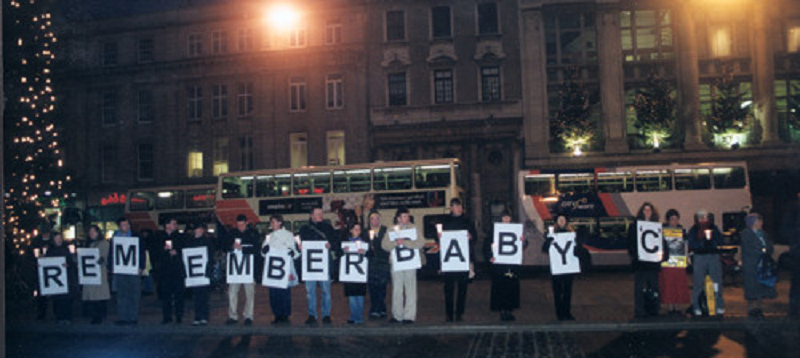History: 2002
The unborn in court
The question of the "personhood" of the unborn child was brought before the courts in January 2002, when a Nigerian woman challenged a deportation order from the Minister of Justice on the basis that she was pregnant.
The baby became known as Baby O, and the case became a bit of a quandary. “Give the woman a chance,” was the catch cry of the media, but that also meant by extension, give all babies a chance. Not a problem for most people, but it would mean that the court would have to make a definitive ruling on unborn children’s rights.
Baby O got a hearing in the court and argued in the absence of a deportation order s/he could not be deported. Faced with this legal person the state initially denied all existence of the person. “Haebus corpus” they chimed, and looked rather silly when corpus just snoozed through the proceedings but was definitely proved to be present.They faced up to facts eventually and the principle was established that the baby did exist and had rights. They still deported him/her though, along with the mammy.
A divisive referendum
2002 was another busy year on the nationally consultative front with the people being asked to decide on the constitution on two separate occasions: once on Europe and once on Abortion.
March 6 was the date set for an abortion referendum – or a pro-life referendum as an Taoiseach, Bertie Ahern, tried to spin it. Publication of the referendum wording came the previous October but the text didn’t cause any jumping for joy around Youth Defence or any other pro-life joint. The wording promised to protect life from the moment of implantation but not before.
Maybe we all look like eejits who wouldn’t know an implant from a turnip, but the flaws in this wording were glaring, beginning with the question “but what about the pre-implanted embryos.” Whatever legalese the government tried to spin to make it seem otherwise, it was pretty obvious that the intention was to leave the way open for embryo research (afterwards shown to be the case). The wording also contained unnecessary ambiguities in regard to medical treatment. After much discussion, YD agreed to oppose the referendum.
A furious Bertie himself but said take it or leave it. YD and others were told that if this proposal was rejected then abortion legislation would surely follow. Since buckling under threats is not a good way of protecting life, we made our decision based on the fact that this was a bad proposal.
Suggested changes to the proposal which would have improved it were rejected by the government.
Some pro-life groups decided to take what was being offered as they believed that there was an unspoken threat of an unacceptable alternative behind the offer. – the lesser of two evils so to speak. The pro-aborts opposed the wording as it didn’t go half far enough, since they favour abortion of the free and on-demand sort.
In the middle of all this were a whole lot of bewildered people, known as the electorate.
In the end the referendum was defeated by a slight majority. The count saw the pro-aborts cheering at what they hoped they could spin as a pro-abortion victory. But YD, M&CC, Dana, Alliance for All Life, CSP, Christian Democrats, HLI and others were there to rain on their parade and claim the spoils for the pro-life movement. Then Bertie and Health Minister, Micheál Martin, acknowledged that a substantial portion of the No vote was pro-life, and admitted there was no mandate for abortion legislation.
The momentum for a pro-life referendum was set back by this flawed proposal. The fact remains that the government were pushed into offering a referendum on abortion by the defeat of the Nice treaty, and they come up with an option that was unacceptable. It was therefore rejected by the people.
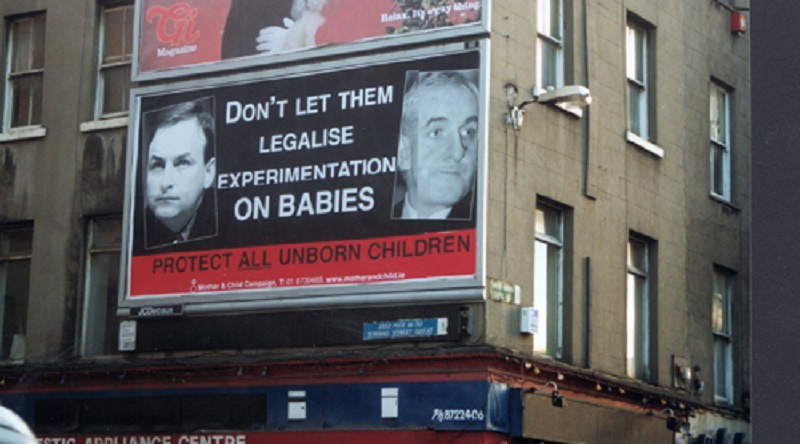
Pro-Abortion labour in a tizzy over what to choose
In September 2001, Labour’s delegate conference voted for an unqualified ‘right-to-choose’ position on abortion. The oddest thing about the vote though was that it did not have the full enthusiasm of chief Labour schemers, Ruairi Quinn and health spokesperson, Liz McManus. Then again, considering it was an objective without any support from the Irish people, it is not really that surprising that Labour’s leadership were cautious about throwing their lot behind an all out demand for abortion. However the delegates, buoyed on by each other and losing touch with the reality that this would not win friends and leave FF with the opportunity to bash Labour as abortion-supporters, banded together in a pack to overrule their ex-Workers Party leaders.
Sure enough, that consummate politician Bertie Ahern hurled this juicy bit of scandal across the Dáil at McManus some weeks before the referendum, and smiled to himself as she got flustered, and gibbered some evasive nonsense. Bertie had the luxury of watching McManus trash about to escape the honey trap of her own party’s policies.
Within a week Quinn and his national executive moved to dump the policy voted through by delegate conference.
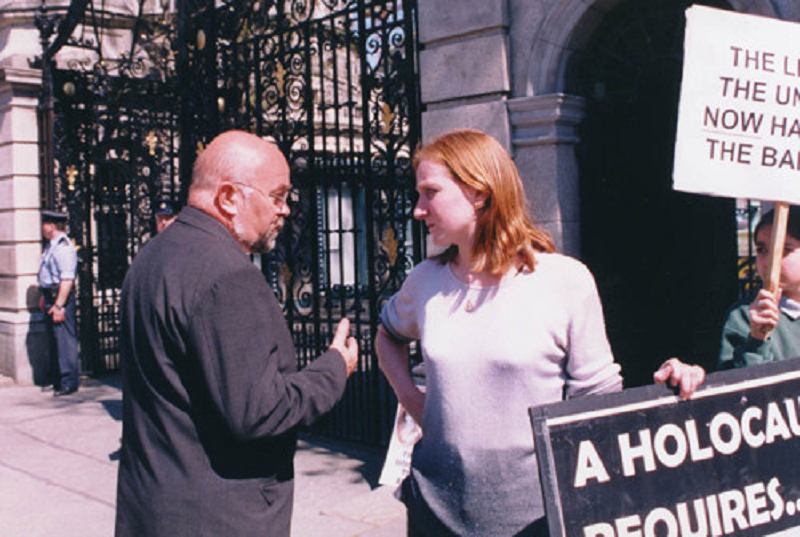
FPA in North devilling away
In March, Precious Life (PL) went to the Northern High Court to challenge the FPA's judicial review of Northern Ireland’s abortion laws. When you decode the FPA claim that the law in Northern Ireland was "unclear" and there was a "lack of clarity" you get the interpretation that they didn’t like the law as it stood.
PL did not agree with this talk - which they described as devious – and said the law in Northern Ireland clearly gave protection to unborn children and their mothers. That decoded is equivalent to: “we like the law as it stands”, as did most other people. So Precious Life started a campaign that included mobile billboards, newspaper Ads, and a media blitz. The pro-lifers went on the offensive with some snappy comments such as: "The FPA doesn't need to go to court to have abortion clarified. I can clarify it for them in one sentence - Abortion hurts women and kills babies."
The High Court did what they do best and reserved judgement with the intention of making it at the end of June.
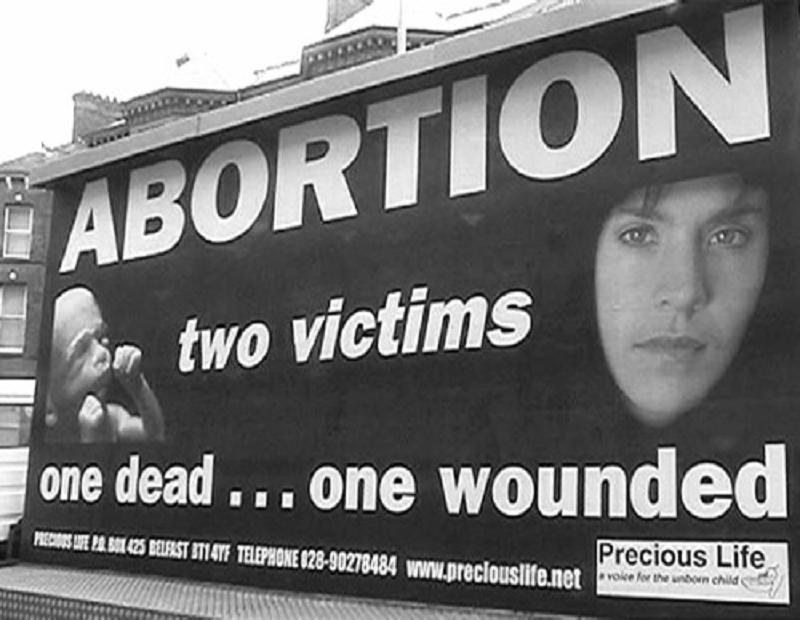
Nice 2
Nice 1 was the first time the Irish people rejected a European proposition and the results were not what you would expect in a perfect world. In this rose-hued utopia the bureaucrats of Europe would slink away with a whimper and their tail tucked firmly between the legs while the citizens of the free world stopped their celebrations only long enough to scoff at the sight of this once mighty behemoth reduced to such impotent status. However outside of our wildest fancies – in the real world – the haughty behemoth that resides in Brussels simply snapped its fingers and the Irish government were the ones with frightened visages and tails rammed between legs.
It’s a pattern that we have come to recognise but at the time everyone was pretty shocked by the despicable cowardliness and cheek of the Irish government when they passed the message along that the “No” was in fact the wrong answer and we would all have to try again.
The gloves were off so and the boys in Leinster House started scheming right away to have the McKenna judgement put aside so that they could plunder the public purse to persuade the electorate to ratify the Nice Treaty. And so it came to pass that the Referendum Commission spent millions of euro (taken from our taxes, as ever) to run TV ads saying that a YES vote was a vote for neutrality, and other wild distortions.
The government campaign went on the emotional blackmail offensive and accused the Irish of being uncharitable (an Irish person’s worst nightmare) by not letting the eastern states enter into the EU. As a red herring it worked a charm as the campaign got bogged down in issues that had nothing to do with the treaty. The No vote actually increased but enough no-shows from the last referendum turned out this time with a Yes on their slip to swing the vote in the other direction. Democracy in action?
Day of Prayer for Unity
After all the hassle with the abortion referendum and the divisiveness caused by taking different sides, pro-life groups decided to get together and work for unity. On Saturday, June 22nd a Day of Prayer for Pro-Life Unity was held in Knock where Holy Mass and prayers were offered so that the pro-life movement could be unified in purpose and in prayer for the protection of life itself.
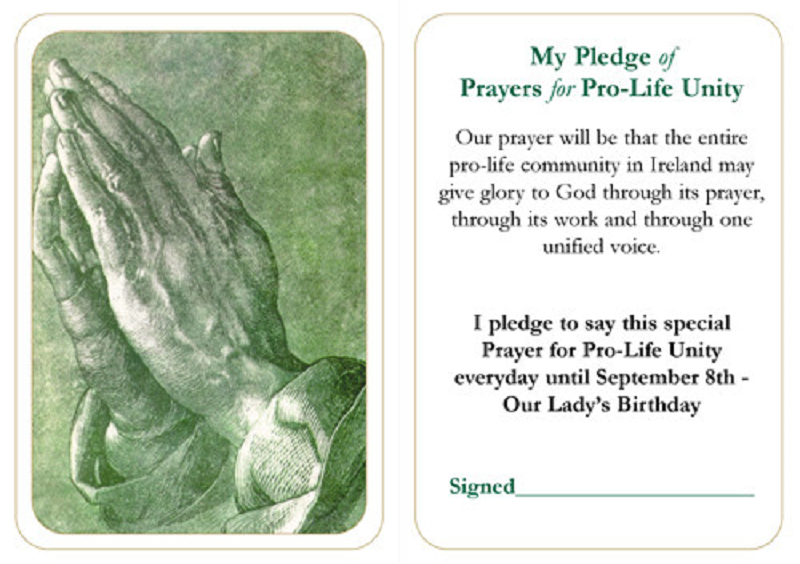
The EP debated the Act the following spring (See Year 2003)
Incidentally, the president of the EP, Pat Cox (Ireland), was at a US-Ireland Business Summit, along with Mary Harney, where Tommy Thompson, US Secretary of Health, said that Ireland should get in on the embryo destructive research racket as it was a pure money spinner. The Irish delegate, if the lack of objection is an indicator, thought this all a sterling plan.
Commemoration for Baby C
Baby C was commemorated on Saturday, 23rd November with a candlelit vigil on O’Connell St, Dublin. The vigil included a projection screen which displayed a series of images showing an unborn child at 14 weeks - the age of Baby C when she was sentenced to death by the state. The presentation also showed who was culpable (including the Eastern Health Board mob) for the death of this child and for the dreadful harm wrecked upon Baby C's mother and family.
